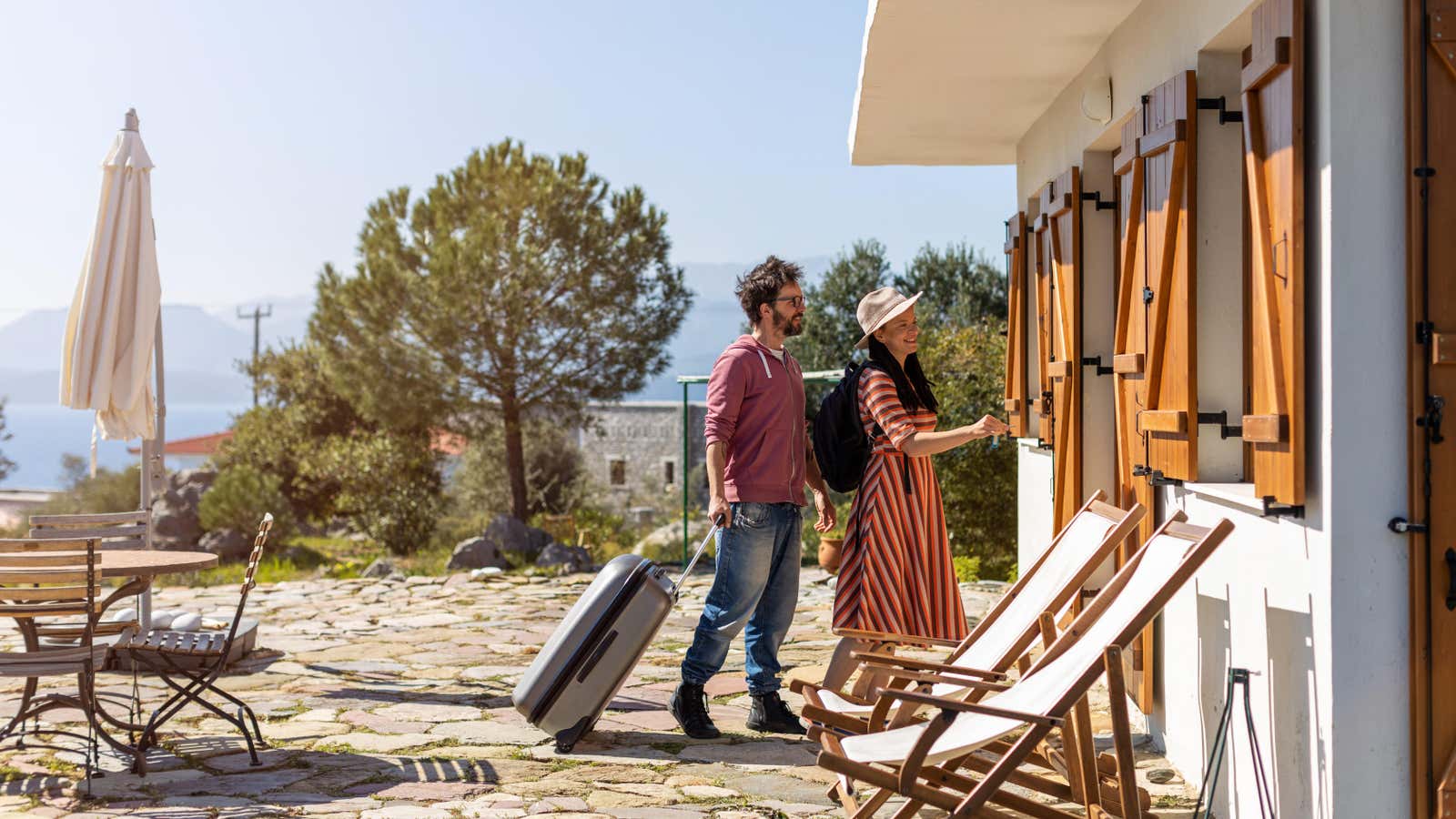Which Is Better: Airbnb or Vrbo?

Of all the peer-to-peer rental platforms, Airbnb and Vrbo are the two biggest names, and they have a lot in common. But while they both have deals cheaper than most hotel rooms, there are differences between the two that are worth knowing about. Here’s a look at how they compare.
Airbnb has better choices than Vrbo
Both Airbnb and Vrbo are peer-to-peer rental sites that allow private owners to rent out private and commercial space to customers in their app. Vrbo, which means “vacation rentals by the owner,” is actually the older of the two platforms, although there are fewer choices, in part because Vrbo only rents out the entire property and not rooms with shared areas like you might look with Airbnb.
For this reason, the cheapest deals can usually be found on Airbnb, although the trade-off is when you’re looking at common or unusual spaces (for example, I once stayed at a cramped Airbnb that had a toilet in the shower stall, but it was cheap). It’s also worth mentioning that Airbnb has made an effort to break away from its cohabitation roots and is now offering hotel rooms as well.
Prices are comparable between Airbnb and Vrbo.
With both services, you are actually booking directly from the landlord, although Airbnb and Vrbo charge a percentage of each transaction in the form of a service fee. Since each property is unique and the prices depend in part on what the owners want to charge, it is difficult to compare the number of apples to apples between platforms. But overall, the base rates and surcharges for Airbnb and Vrbo are comparable.
Airbnb typically charges an additional 5% to 20% service charge on the subtotal (excluding taxes), which may include the night rate, cleaning fees, and any other additional charges from guests (Airbnb says their discount is usually is 14-16%. ). With Vrbo it is in the same range – you are charged approximately 6% to 12% of the subtotal (net of taxes), which also includes additional fees. As such, since additional fees are set by Airbnb and Vrbo, the total cost varies by property. It’s also worth noting that Airbnb offers discounts on long-term stays, while Vrbo does not.
Airbnb and Vrbo have a variety of cancellation options.
Cancellation policies apply to a wide variety of both Airbnb and Vrbo and can be found on the individual property’s web page when you select a place to stay on either platform. Typically, you can receive a refund based on various cancellation periods prior to the booking date, and again, this is determined by the property owners.
The only hit to Vrbo, at least for customers, is that owners have more options to customize their cancellation policy, which can be confusing to customers. To ensure this policy is not overly burdensome, you need to carefully read the owner’s policy for both Airbnb and Vrbo, but especially Vrbo.
Vrbo’s interface is bulkier than Airbnb, but has better search capabilities.
Vrbo’s design isn’t as attractive as Airbnb’s (it does have ads), but it does offer improved search functionality by letting you filter results by overall rating, popularity, cancellation policy, or cleanliness. This is sorely lacking for Airbnb.
Bottom line
If you only had to choose one platform, Airbnb would be the best choice due to the large selection of sites they offer. But of course, you don’t have to just pick one platform, which means you can continue to use Vrbo as an add-on to Airbnb. Some properties are listed on both sites, so there might be some overlap between the two sites in terms of search results, but there are also listings that are unique to each platform, so you’re more likely to find the best deal by searching on both. Airbnb and Vrbo.